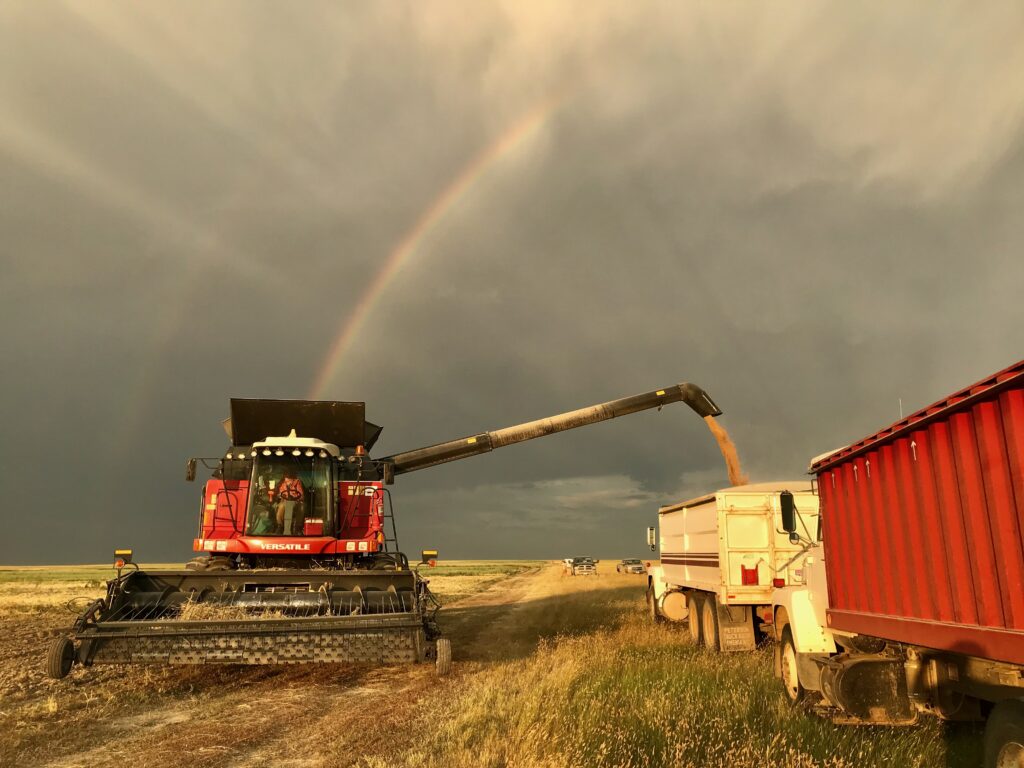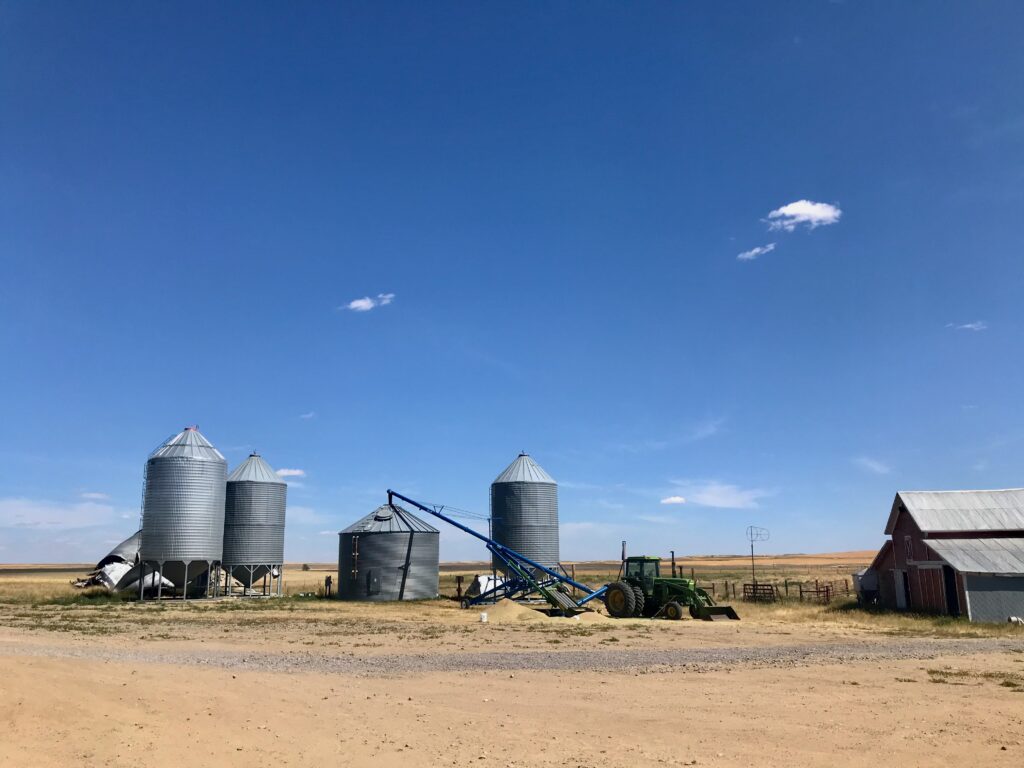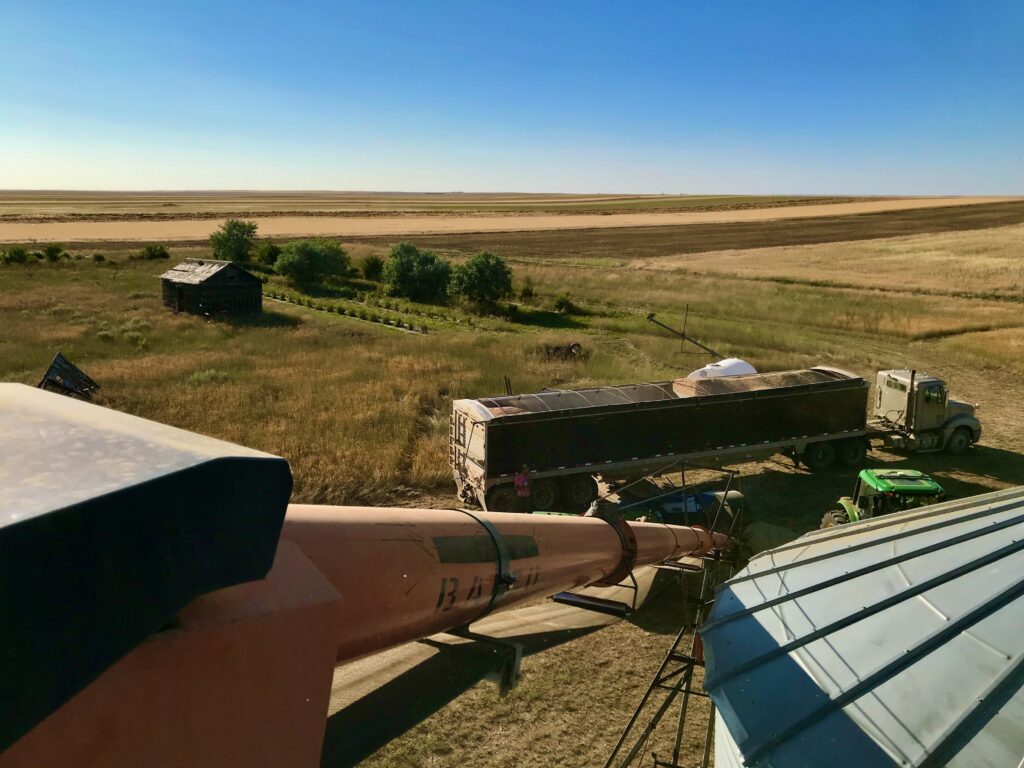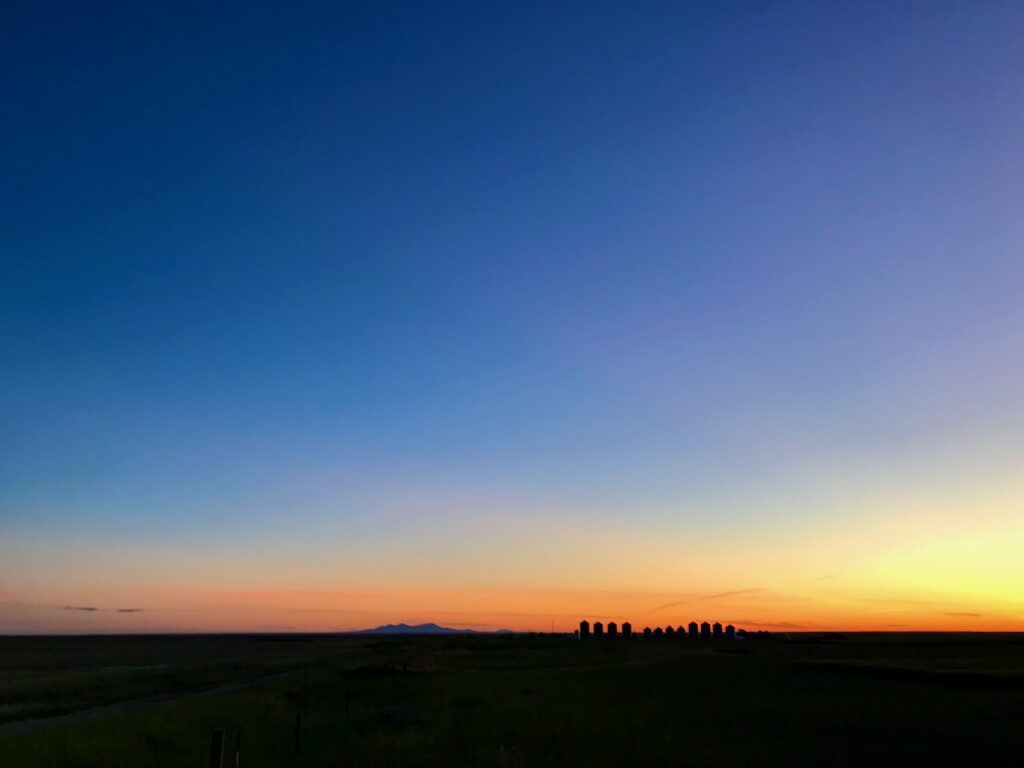I wrote my first blog post at the two-week mark of my internship with Vilicus Farms, a 9,600-acre organic grain, legume, and oilseed farm. I was still in awe, in love with the place, the work, and the people. As someone who is undecided about my future line of work and is farmer-curious, I was impressed by the immediate joy, but anxious that the excitement would be replaced by monotony as the work gained a routine.
Now back on campus, zooming through my courses again, I miss the farm like hell. Yet back in August, in the last weeks of my internship, I indeed felt the first hints of monotony as harvest got underway. The work days got longer (8am–9pm, Mon–Sat) and gained the following routine:
1.Swath the crop (drive a 40’ wide electric razor to cut down the crop) to let it dry in long piles for a couple days or weeks.

2. Combine harvest the crop (pick up the crop and separate the edible grain from the stalk and the chaff). When the combine is full of grain, empty it into a truck parked at the side of the field.

3. When the truck is full, drive the truck to one of Vilicus’ on-farm bin sites. Unload the truck onto a conveyer belt which drops it in the bin.


A view from atop a bin while unloading a truck of peas into it. This site has 18 bins.
4. Repeat for the next 10 weeks, emptying truck after truck, filling bin after bin, until all the crop is harvested and stored.
My internship ended after only two weeks of harvest. For Anna and Doug, the co-owners of Vilicus, and the rest of the team harvest continued for another 2 months. Though my anxiety was realized and I felt the first pangs of monotony, some reflection leads me to believe I am in fact too removed to feel the deeper excitement that would eventually overcome monotony. As an intern, I was a visitor. I will not see those harvests sent to buyers and processors. I will not watch those buyers’ checks roll in, and watch those checks pay for more land, machines, and the fulfillment of Anna and Doug’s dream: to be leading stewards of the land, at the vanguard, inventing a model for large-scale, ecologically thoughtful, organic grain farmers.
I hunger to have the deep knowing that I took care of the land well and fed countless people healthy meals. Perhaps in Anna and Doug’s shoes I would feel each dried yellow pea, each hard winter wheat berry, each flax seed’s mighty influence as it drops into a metal bin on the great Montana plains.

Tim Ibbotson-Sindelar, Western Resources Fellow |Tim Ibbotson-Sindelar is a joint Master of Environmental Management and MBA candidate at the Yale School of the Environment and the Yale School of Management. He is studying U.S. food and agricultural systems with the aim to shift the present paradigm to support the health of ecosystems and humans, and create financial incentives and stability for farmers to improve their land and local ecosystems. He holds a BA in economics from Haverford College. He previously worked as a financial litigation consultant, and more recently as a produce procurement analyst at an online grocer. See what Tim has been up to. | Blog

